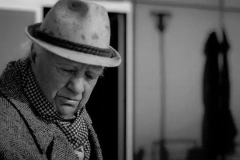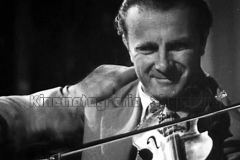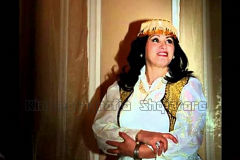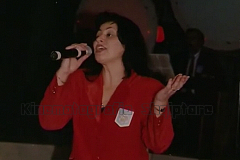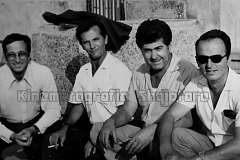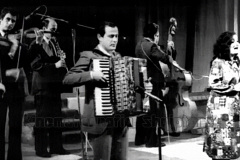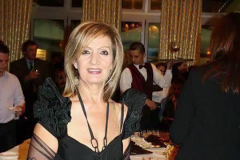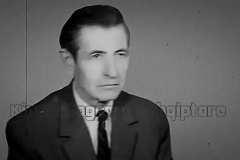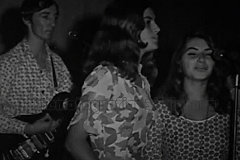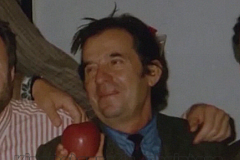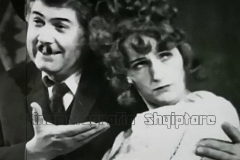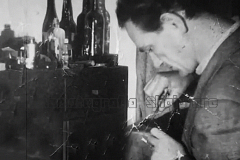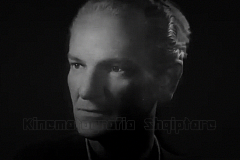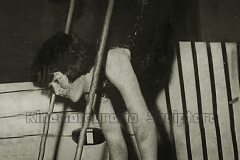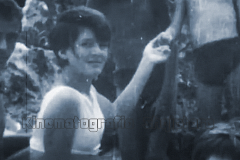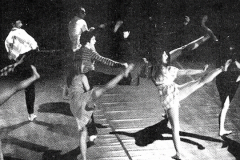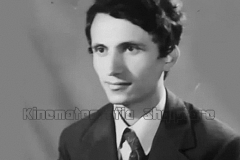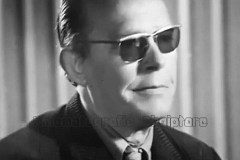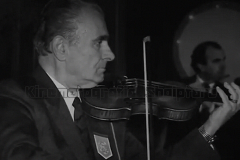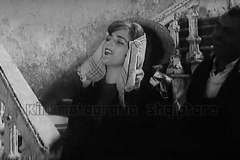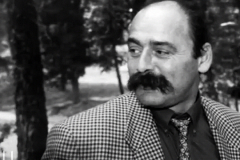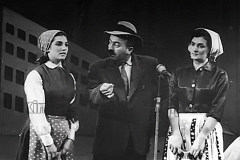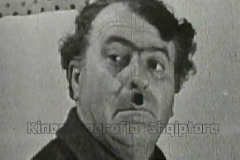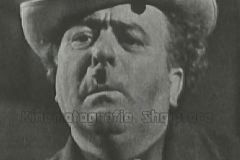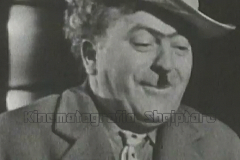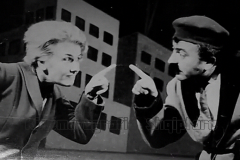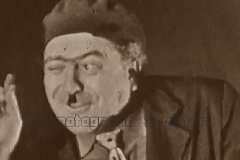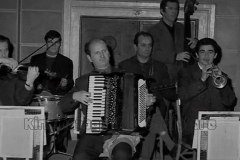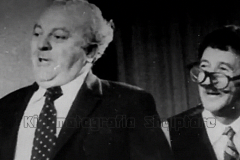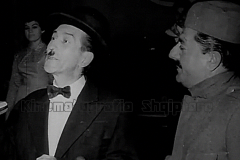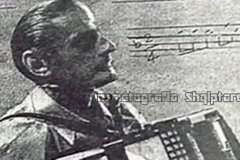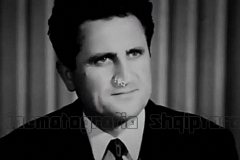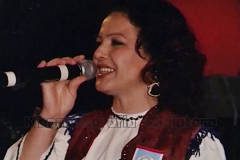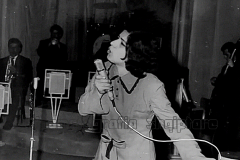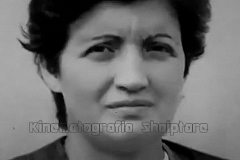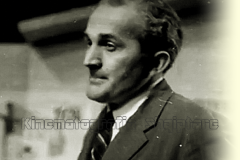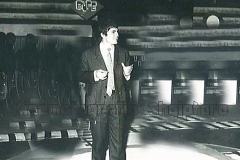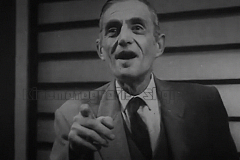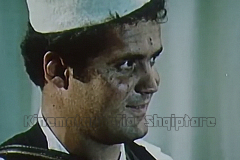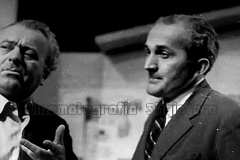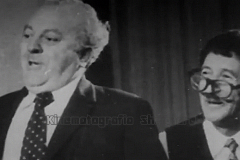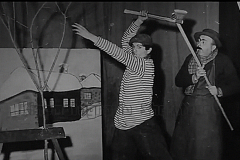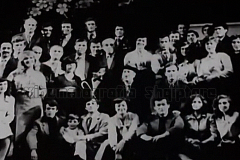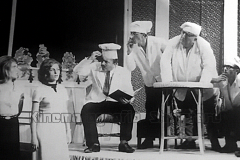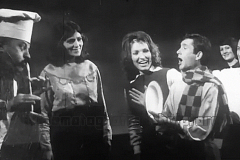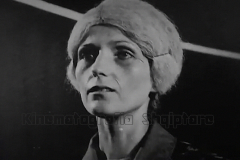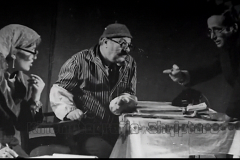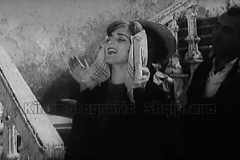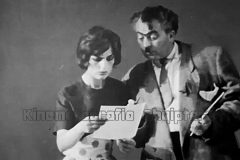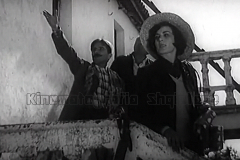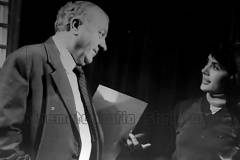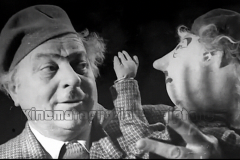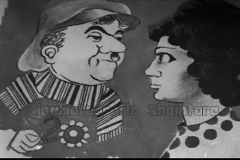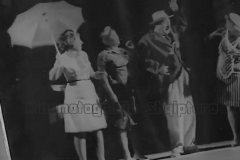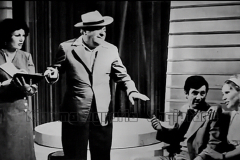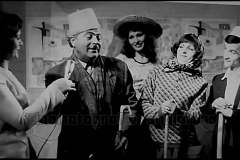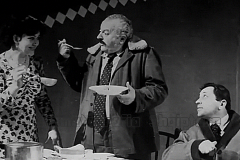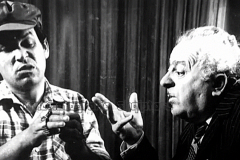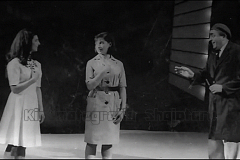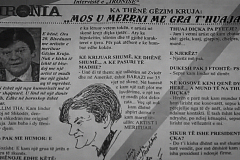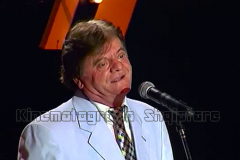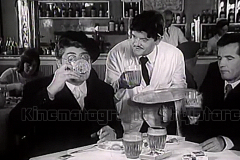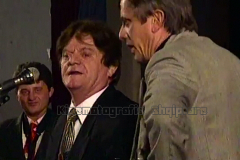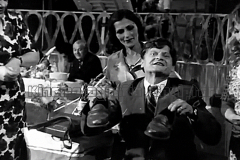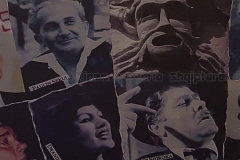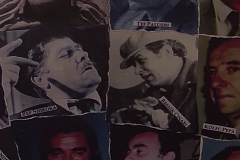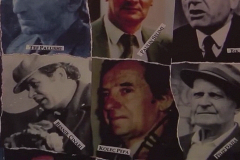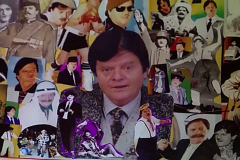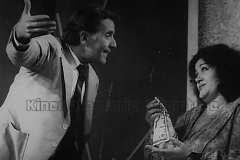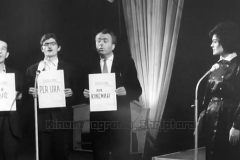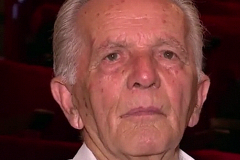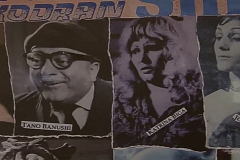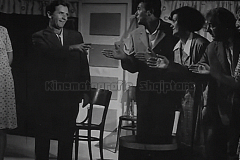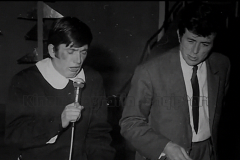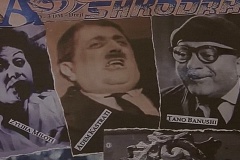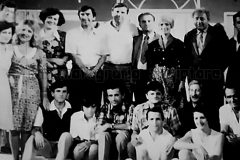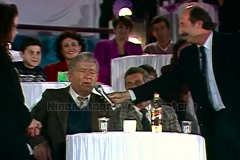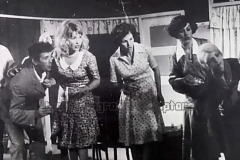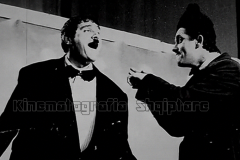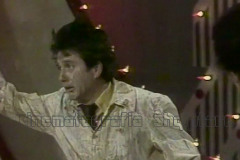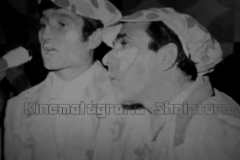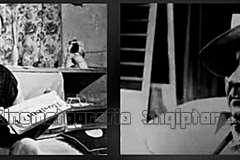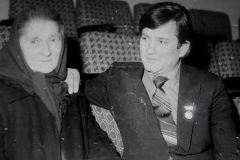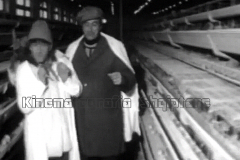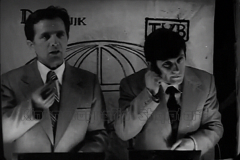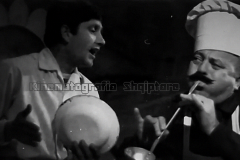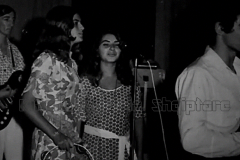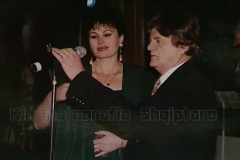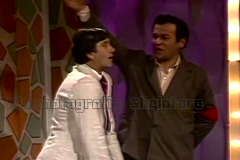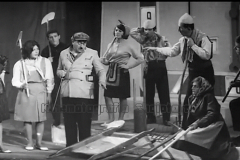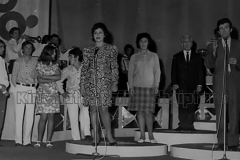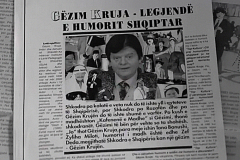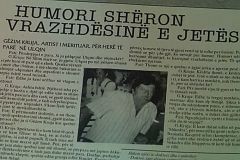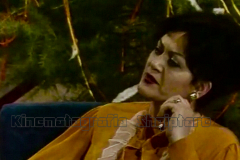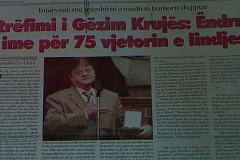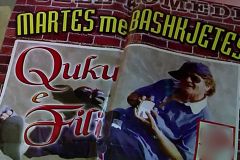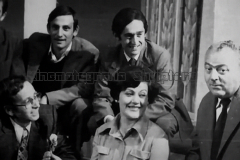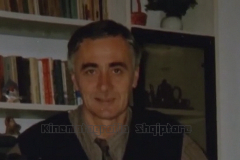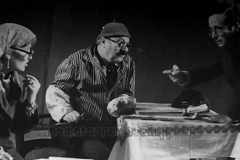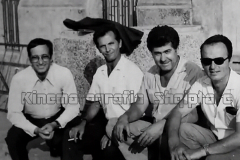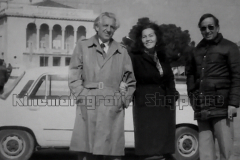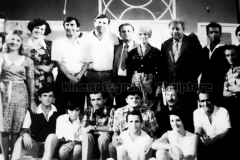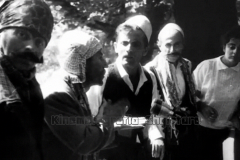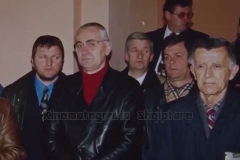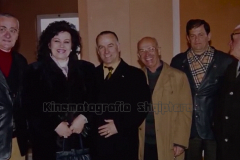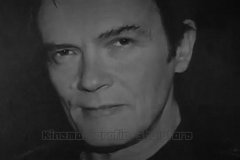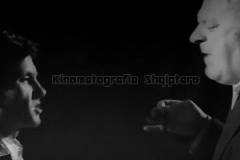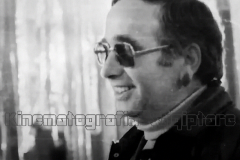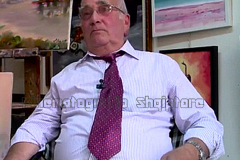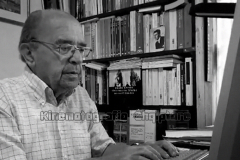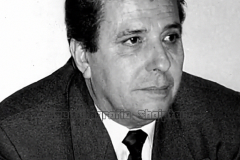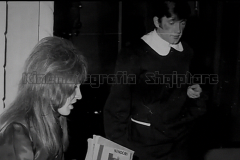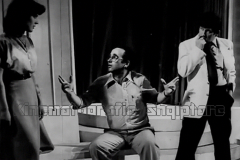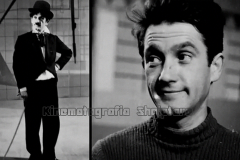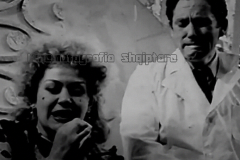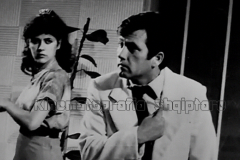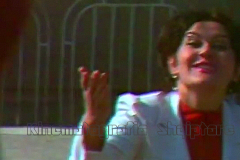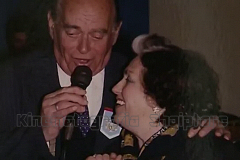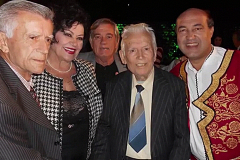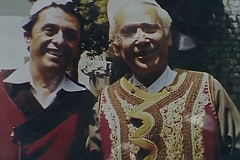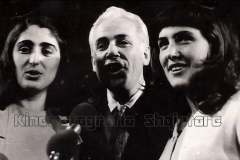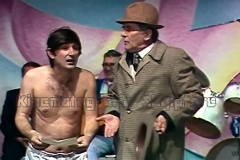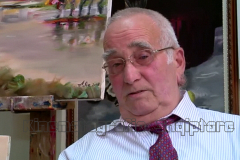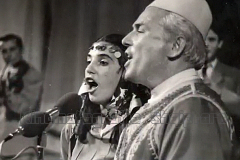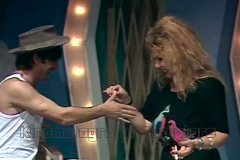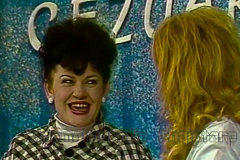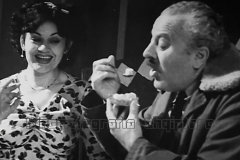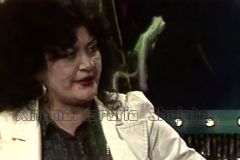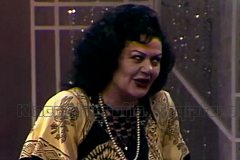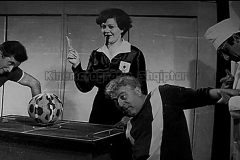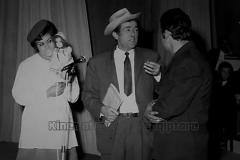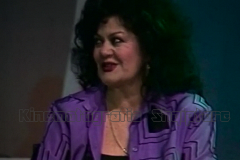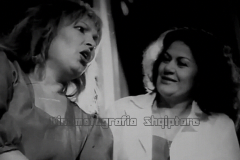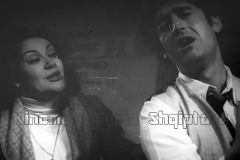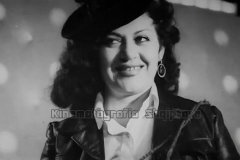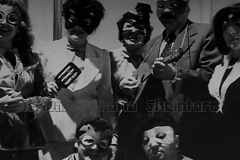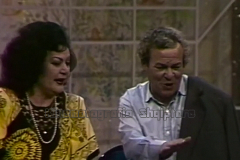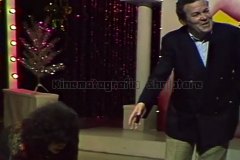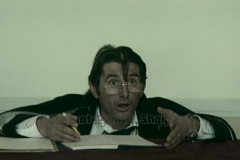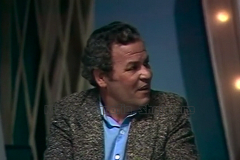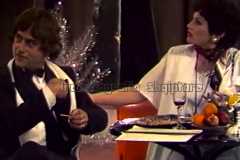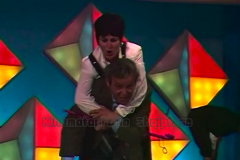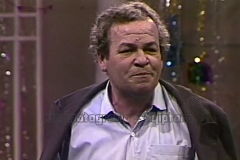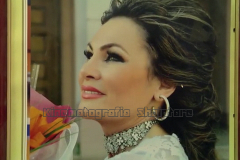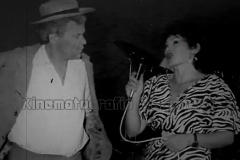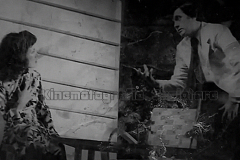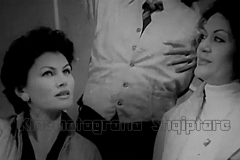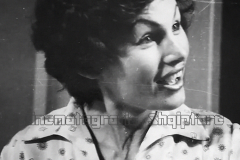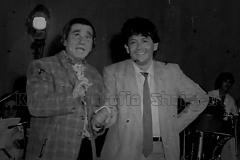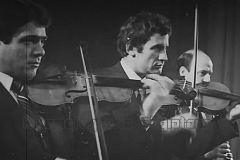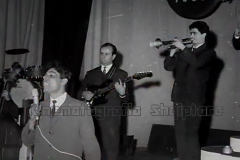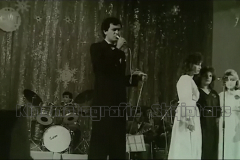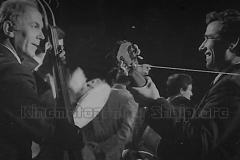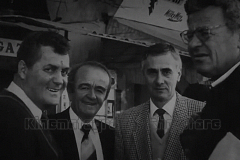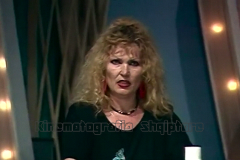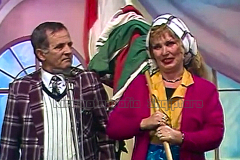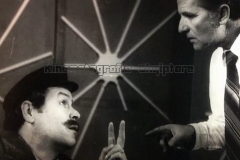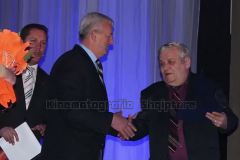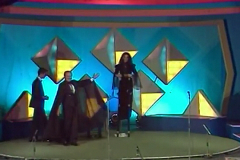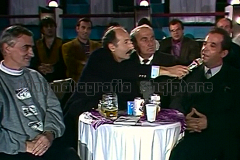November 14, 1958 is the date of the premiere of the first performance of Estrada of Shkodra, which is also the official date of the foundation of this troupe.
It is a professional variety theater institute. Shkodra is the city that has a rich and enviable tradition and is the most important part in the history of Albanian Art, in all its fields from this city came characters who have become icons. There are countless ones from film, theater, music, painting, etc.
The people of Shkodra are also distinguished by their humor, in “Bejta” or “Barcoleta”, every now and then you never find a shkodran “who doesn’t know how to tell you a funny story”. Therefore, it cannot be different for the professional variety shows and comedians who came out of this city with the artist gene.
The tradition has already started with the folklore theater heritage and then in the period of the National Renaissance, in that of the monarchy in the years `20-`30 with the cultural and artistic societies known as “Bogdani”, “Vllaznia”, “Rozafat”, as well as with the massive development of this type of theater in the first years after the liberation of the country, thanks to the many amateur groups established in the various production centers.
“Estrada of Shkoder” has its beginnings around 1954, when the director at the time, Andrea Skanjeti, managed to put on stage a number called “Estrada ne penxhere” (shkodran dialect for window), with the songs of Tonin Harapi and Deto Haxhi, the orchestra was conducted by Zef Leka, a little later he performed the next number entitled: “U cua njeni e tha” (still in dialect “someone got up and said”).
The preparation of the humorous and literary parts was done by A.Skanjeti, the selection of popular songs by Deto Haxhi, while Zef Leka conducted the orchestra.

In 1955, the director Skanjeti put on two variety shows, namely: “E taşh do te degjoni” and “Estrada pa perçe”. Writers Tonin Miloti, Jonuz Dini, Ton Shoshi, Frano Gjelaj, Ludovik Pepa contributed to these numbers. Performed by amateur actors (at that time) Hasan Smaja, Tano Banushi, Paulin Preka, professional actors: Adem Kastrati, Tinka Kurti, Prekë Lëkunda, Lec Ndreka, Pistol Soja, etc.
The orchestra was conducted under the direction of Tonin Zadeja.
The year 1958 will come when professional variety shows were created with the direction of Paulin Sekuj, who in addition to talent was also a tireless worker, systematic in his work, a sniffer and a researcher.
Very quickly, this troupe would become popular throughout Albania with a special artistic physiognomy. The first premiere of Estrada of Shkodra, which also marks the date of its establishment, is “In the Heart of Surgery Department”, which was given on November 14, 1958, directed by Paulin Sekuj.
In the first decade, in the center of satire and humor, was the patriarchal and conservative phenomena that characterized the Albanian society and family with the appeal for the emancipation of women, her place in society, as well as a wide range of topics from economic and political life.
Some of the most outstanding shows for their artistic level, especially during the 60s and 70s, were: “Mi gëzofsh njezet prandverat” – 1961 / “Stafeta rreth pemes” – 1961 / “Te Apartamenti N. 31” – 1962 / “Festivali i Karnavalit” – 1962 / “Pikniku” – 1962 / “Karajfilat” – 1963 / “Nëper birë të çilsit” – 1963 / “Peshqesh me e varë në vesh” – 1963 / “Rreth e rreth Shkodres” – 1964 / “Mendo ban kthese” – 1965 / “Thupra fishkulluese” – 1965 / “Krah per krah me burrin” – 1967 / “Laj e shpelaj qit n`diell e thaj” – 1970 / “Po te kendoj kengen me saze” / “Neper faqet e historise” / “Brigadat e elektrifikimit” / “Rreth pemes se Vitit te Ri” / “Mire se te vini” / “Bilbilat” / “Ere pranverore” / “Hallet e hallkave” / “Ju lutem buzeqeshni” / “Me laps ne dore” etc.
Among the actors and actresses of the first generation of this show were Tano Banushi, Hasan Smaja, Jolanda Shala, Hajrie Sula, Kole Shiroka, Bike Pepa, Katrina Biga, Zyliha Miloti, Drita Tahiri, Musa Ademi as well as actors active later from the Amateur Movement such as Gjosho Vasia, Gezim Kruja etc.
In addition, other actors, a whole generation who contributed to this troupe, were not forgotten: Ermelinda Paparisto, Krisanthi Tasallari, Ndoc Sheldija, Njazi Burgija, Liljana Paci, Klotildë Shantoja, Pjerin Ashiku, Eshref Damnori, Teufik Duka, Lah Mema, Esat Kola (also as a soloist).
This “Estrade” troupe was characterized by the variety of artistic individualities as well as by the most redeemed treatment of arguments, characters and comic phenomena, a humorous language that stood out for comic surprises, wit, color, fine taste and critical sense. This troupe won the First Prize at the national meeting of variety shows “Days of Humor and Satire” in 1983, with the premiere “Days of Smile `83”. In this annual event organized in Shkoder, she has been honored several times with the “Cajupi” award.
In the 1980s, a qualitative increase was observed in the overall conception of performances, in new artistic structures, where long humorous literary materials such as there are short comedies and full skits, which manage to deal with a certain phenomenon in more detail.
Meanwhile, in her repertoire, original theatrical forms were applied more often, such as shows with an axis, those organized around an idea, around an individuality (actor, singer, etc.), the creativity of a humorist writer, shows with one character in the center, with the use of a finding or scenic metaphor, etc. Among the most successful types of these kind performances was the one of 1985 with satirical and humorous poems selected from the creativity of the writer Dritero Agolli.
Shkodran and the wider public have remained throughout this period as well several quality shows, such as: “Rreth e qark Shkodrés” (I980), “Me njé gome fshirése” (I984), “Kush éshté i kulturuar”? (I988) etc.
After 1991, from the point of view of the truth of treatment of comic phenomena, as well as the striking force of satire and humor, “Estrada” of Shkodra shows a noticeable growth. Although the number of actors and premieres was reduced, the presence of a sharp social issue was noticed in her performances, mostly directed towards the low and degraded phenomena of the dictatorship period, but also towards those of the period transition, this is accompanied by a strong criticism and tone of laughter.
From the most prominent shows of the 90s, mention: “Portraits without makeup” (I99I), “With the properties of humor”, “Is there a misunderstanding? (I995), “No points of seriousness”, “Comic focus” (I996).
After the year 2000, Estrada e Shkodra has brought humor, satire and social criticism to the attention of the deformities encountered in the Albanian society in transition, the phenomenon of property theft, the possession of self-interest, vices and deficiencies in the new market relations, wounds and Moral problems in society and family, immigration problems, etc.
Among the successful premieres after 2000 are: “Pas skene, ne’ skené” (2000), “Thumbi thumbon” (2003), the premiere with Kristo Floqi’s comedy, several recitals from the creativity of her famous actors, such as: Zef Deda, Zyliha Miloti, Gézim Kruja, etc.  As consolidated features of this group stand out: the use of a wide range of humorous and satirical kind such as comedy, sketch, couplet. monologue, humorous story, parody, recitation of selected poetry, imitations, humorous dance; the selection and processing of Shkodra civic songs, valuable compositions in the genre of music, numbers with prestidigitator, etc.
As consolidated features of this group stand out: the use of a wide range of humorous and satirical kind such as comedy, sketch, couplet. monologue, humorous story, parody, recitation of selected poetry, imitations, humorous dance; the selection and processing of Shkodra civic songs, valuable compositions in the genre of music, numbers with prestidigitator, etc.
 This is how the artistic feature in defining the physiognomy of this variety show was the abundance and variety of artistic profiles, including its famous actresses, singers, and musicians; Furthermore, the finesse and sharpness of the humor, the seemingly cheerful and improvisational character of the various performances. jokes’, toys, free stage behavior, also include original forms, models and types of organizing shows, etc.
This is how the artistic feature in defining the physiognomy of this variety show was the abundance and variety of artistic profiles, including its famous actresses, singers, and musicians; Furthermore, the finesse and sharpness of the humor, the seemingly cheerful and improvisational character of the various performances. jokes’, toys, free stage behavior, also include original forms, models and types of organizing shows, etc.
In addition to the actresses of the first generation, Zef Deda, Mark Lekunda, Drane Xhaj, Besnik Qinari, Sander Ruci, Muhamet Cekini have also played successfully in the Estrada, Edmond Halili, Aleks Selmani, Rita Ndoci (also as a singer soloist), Smajl Alia and all the others until the last one who came from Amator Movement, Anton Krosaj.
Known and admired by the Shkodran and Albanian public in general, there have been professional or amateur singers, such as: Florinda Gjergji, Marjeta Çuni, Ndrek Gjergji, Esat Kola (also as an actor), Fatmira Puka, Ermelinda Paparisto, Drita Tahja, Xhelal Daka, Gjyliana Marashi, Ali Muçiqi, Shpresa Mani, A. Pelinku, Tonin Tershana, Xhemal Zaganjori, Bik Ndoja, Shyqiri Alushi, Tonin Gjergji, Burhan Mesi, Justina Aliaj (also as an actress), Shpresa Rranza, Frederik and Rita Ndoci, Violeta Zefi, Myfarete Laze, Bashkim Alibali, Mukades Canga, etc. Paulin Sekuj, Edmond Méhilli, Ndoc Cefa are mentioned as directors with the longest life as well as contributions to her troupe, while other directors who worked with this troupe were: Tano Banushi, Vehbi Canga, etc.
 As music director and orchestrator: Mark Kaftalli Gjon Kapedani, Zyhdi Barbullushi, Abdullah Salabegu, Muhamet Grimci, Kel Kaftalli, Fuat Miloti, Česk Jakova, Česk Çefa, Gjovalin Doda, Njazi Burgija, Robert Prendushi, Česk Shestani, Muhamet Grimci, Fuat Miloti, Tish Hila, Gjina Nenshati, Gani Tahiri, Nino Saraci, Ylli Drishti, Zef Coba, Luan Borova, Nazmi Lishi…
As music director and orchestrator: Mark Kaftalli Gjon Kapedani, Zyhdi Barbullushi, Abdullah Salabegu, Muhamet Grimci, Kel Kaftalli, Fuat Miloti, Česk Jakova, Česk Çefa, Gjovalin Doda, Njazi Burgija, Robert Prendushi, Česk Shestani, Muhamet Grimci, Fuat Miloti, Tish Hila, Gjina Nenshati, Gani Tahiri, Nino Saraci, Ylli Drishti, Zef Coba, Luan Borova, Nazmi Lishi…
In the scenographic solutions of the premieres, the emblematic and symbolic character of the decorations has taken over. Unlike the conventional depictions of action environments, occasionally accompanied by expressive compositions that helped create interesting mise-en-scenes. Its stage designers were Pjeter Deda, Lec Fishta, Agim Kadillari, Skender Selimi, Česk Vuksani. etc. Scene inspector: Česk Vuksani. The circus group led by Myftar Tafilin included Eduard Gjoken as a conjurer and Liljana Kalleshi as an acrobat.
 Named later the “Estrade Theater of Shkodra” together with the “Dramatic Theater” as a unified institution, it had in its organic structure after v. 90s (both variety shows + theater) 37 people, including the support staff. The troupe of “Estrada of Shkodra has 6 actors, 1 director, 1 scenographer, 1 director, 1 stage inspector, 7 background assistants.
Named later the “Estrade Theater of Shkodra” together with the “Dramatic Theater” as a unified institution, it had in its organic structure after v. 90s (both variety shows + theater) 37 people, including the support staff. The troupe of “Estrada of Shkodra has 6 actors, 1 director, 1 scenographer, 1 director, 1 stage inspector, 7 background assistants.
The most complete personnel achieved before 1991 resulted in a total of 25 people, of which 12 actors, 10 instrumentalists and singers. 1 conductor, 1 director, 1 scenographer, 7 assistants.
The text was published for the first time in April 2013 and was revisited and supplemented along with the photos in the following years.
___________________________
Albanian Cinematography in activity since 2013
Reference: Encyclopedia, Theater and Albanian Cinematography / Toena 2009 / J. Papagjoni / p 116-117 / as well as personal notes “Albanian cinematography”
Follow us: Blog: https://albaniancinematography.blogspot.com/ Vimeo: Albanian Cinematography (vimeo.com) Facebook: https://www.facebook.com/ksh.faqjazyrtare Dailymotion: https://www.dailymotion.com/kinematografiashqiptareartisporti YouTube: https://www.youtube.com/channel/UCDRYQ5xCyGkfELm3mX8Rhtw
Discover more from Albanian Cinematography - Sport
Subscribe to get the latest posts sent to your email.

